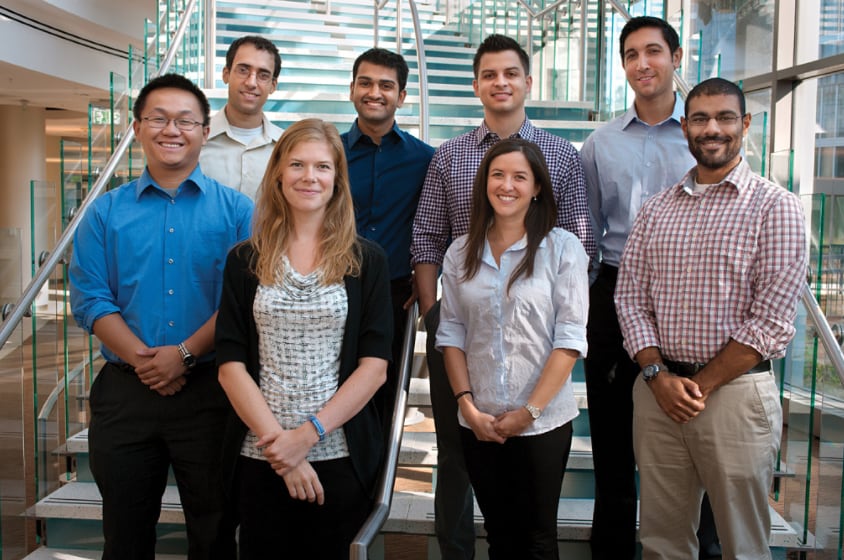See Yourself in a Public Health Career
Have you wondered what kind of STEM career is best for you? Public health is a multi-disciplinary, growing field that capitalizes on the strengths of STEM skills. Public health needs people like you who are interested in STEM careers. CDC has many programs and resources that offer real-world training and experience to help you find your pathway into public health.
Public health is everywhere, and there is something for everyone in public health. With more than 170 public health job categories, there are many ways you can use your STEM knowledge and skills to carve out a public health career path. All you need is the creativity and flexibility to apply your technical interests and abilities.
Search careers and job titles in the U.S. Bureau of Labor Statistics, Occupational Outlook Handbookexternal iconexternal icon.
Biologists
Epidemiologists
Microbiologists
AV Production Specialists
Computer/Information Technology
Informatics
Health Scientists
Medical Doctors and Nurses
Physician Assistants
Veterinarians
Behavioral Scientists
Emergency Responders
Contracts/Grants Managers
Finance/Budget Administrators
Communication Specialists
Health Education Specialists
Writers and Editors
Global Health Educator
Humanitarian Assistance Manager
Public Affairs/Relations Officers
Health Policy and Management
Safety & Occupational Specialists
Environmental Health Scientists
Statisticians
Public Health Advisors
Accountants
Web Developers and Administrators
Health Informatics Specialists
Because public health brings together people with diverse educational backgrounds, there is no pre-requisite educational degree to work in public health. At the undergraduate level, you do not need to major in public health to apply for a graduate-level degree, such as a Master of Public Health (MPH). However, some universities and schools accredited by the Council on Education for Public Healthexternal icon offer a Bachelor of Science and Bachelor of Arts in public health. At the graduate level, the most common graduate degree is the Master of Public Health. Others include, but are not limited to, a Master of Health Administration, Master of Science, and Master of Health Science.
Believe it or not, many public health professionals did not start out their career pathways knowing that they wanted to do public health. Some start their careers in public health, while some used to be photographers, members of the military, librarians, teachers, nurses, and more. At CDC, not everyone works in a lab nor is everyone a scientist.
Many pathways can lead to a career in public health, so if you are interested in pursuing public health, you have many options! Learn more about Career Fields at CDC.
Global public health: Global health organizations work to prevent and detect disease outbreaks and other public health threats across the world.
Federal public health agencies: Federal public health agencies work with state and local public health departments to prevent and detect disease outbreaks and other public health threats across the country.
State and local health departments: State and local public health departments work to detect disease outbreaks and other public health threats in their communities. State and local health departments are in charge of enforcing public health regulations in the United States and will work with federal and global health agencies as needed.
Other government agencies: Other health agencies set public health policy and enforce public health laws and regulations at every level of government.
Colleges and universities: Colleges and universities make important research, education and policymaking contributions in public health.
Health care settings: In addition to caring for patients, doctors’ offices, hospitals and other healthcare settings work with local and state health departments to help keep communities healthy.
Nonprofit agencies: Nonprofits can do everything from providing funding for public health research to offering individual care to patients.
Private companies: Much like nonprofits, private companies wear many hats in the public health world and can do everything from providing funding to research and development.
CDC is one organization, but its success and stature as one of the most respected government agencies is thanks to the more than 50,000 people who have worked at CDC since its beginning in 1946. It is the daily work of individual staff members, physicians, epidemiologists, communication specialists, lab scientists, accountants, lawyers, administrators, and countless other professionals that makes the agency hum with efficiency and productivity.
Explore public health as a career by watching videos, browsing testimonials, and reading real-life stories from CDC employees, fellows, and other public health professionals.
In these videos, different CDC staff talk about their jobs and how they got where they are. Learn about their experiences in nursing, procurements and grants, emergency preparedness and response, public health, mental health and suicide prevention, laboratory science, infectious diseases, and more.

Hear CDC’s Epidemic Intelligence Service (EIS) officers and other CDC staff share their stories and go behind the scenes of their work.
You can also find out where EIS alumni are now.